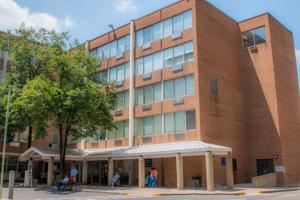Nosso Centro Cardiovascular oferece serviços terapêuticos de diagnóstico e tratamento acessíveis e de última geração para uma gama completa de doenças e condições cardíacas. Além do atendimento direto, oferecemos exercícios supervisionados por médicos e programas de modificação do estilo de vida e medicamentos para ajudar a gerenciar o risco cardiovascular de pessoas propensas a doenças cardíacas. Nossa equipe está comprometida em oferecer cuidados enraizados na excelência, inovação e compaixão.

BMC Cardiology classificado entre os 50 melhores programas do país pelo U.S. News & World Report
Experiência líder
Médicos Premiados
Nossos médicos e cirurgiões foram reconhecidos como alguns dos melhores médicos da cidade na lista "Top Docs" da Boston Magazine.
Centro Nacional de Excelência
Nosso Centro de Amiloidose de renome internacional foi nomeado Centro Nacional de Excelência para o manejo de pacientes com amiloidose cardíaca.
Especialidades de Alto Desempenho
Cardiologia e Cirurgia Cardíaca foram reconhecidas como de "alto desempenho" pelo U.S. News and World Report.
Localização e contato
Centro cardiovascular
Segunda a sexta-feira, das 8h às 5h
Departamentos e Programas Relacionados
Centro de Arritmia
Cirurgia Cardíaca
Clínica de Cardiomiopatia Hipertrófica
Cardiologia Preventiva
Centro de Medicina Vascular

Bolsa de Medicina Cardiovascular
Nosso programa de treinamento com bolsas de medicina cardiovascular geral credenciado pelo ACGME está comprometido em treinar a próxima geração de líderes em medicina cardiovascular clínica e pesquisa cardiovascular. Nossos bolsistas estão expostos a todo o espectro da cardiologia paciente internado(a) e paciente ambulatorial no Boston Medical Center e no West Roxbury VA Medical Center. Há ampla oportunidade para treinamento avançado em imagem multimodalidade, insuficiência cardíaca, cardiologia intervencionista e eletrofisiologia. Além disso, temos a capacidade de fornecer treinamento de pesquisa orientado para permitir que bolsistas lancem carreiras de pesquisa bem-sucedidas em medicina cardiovascular investigativa.


